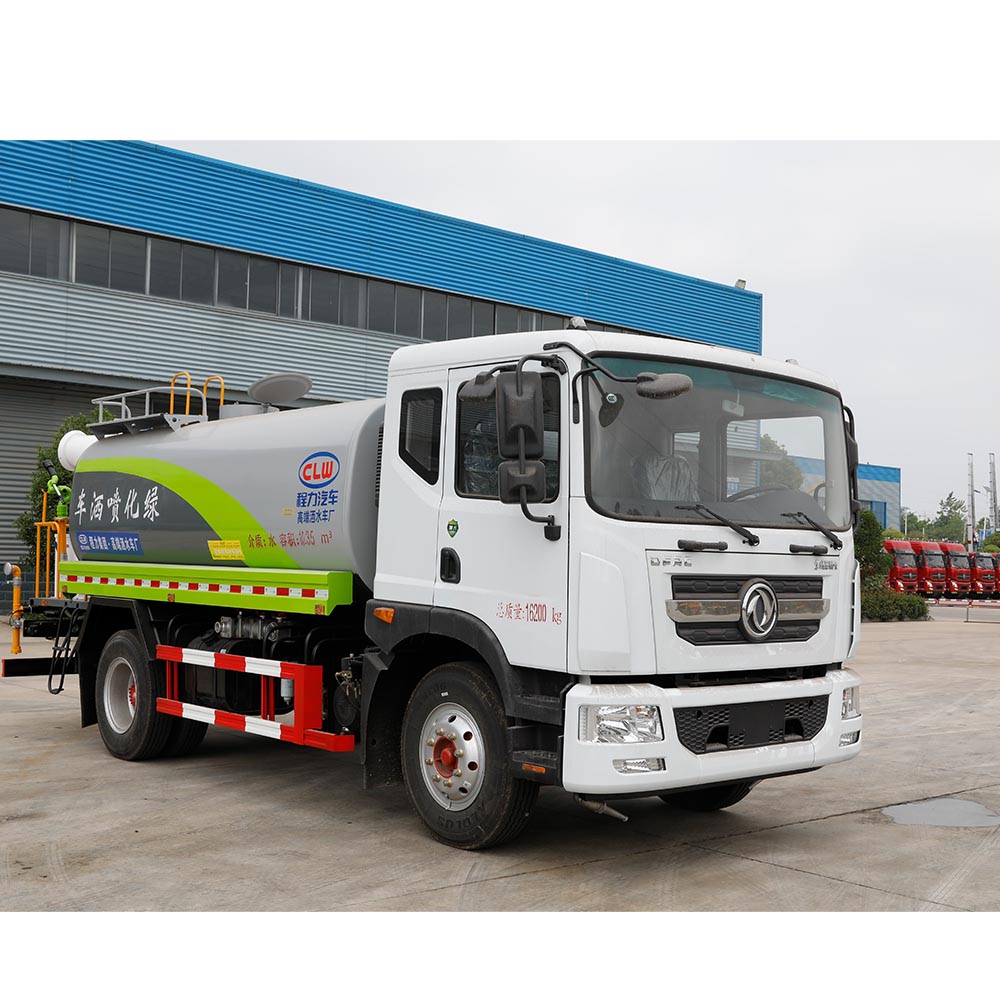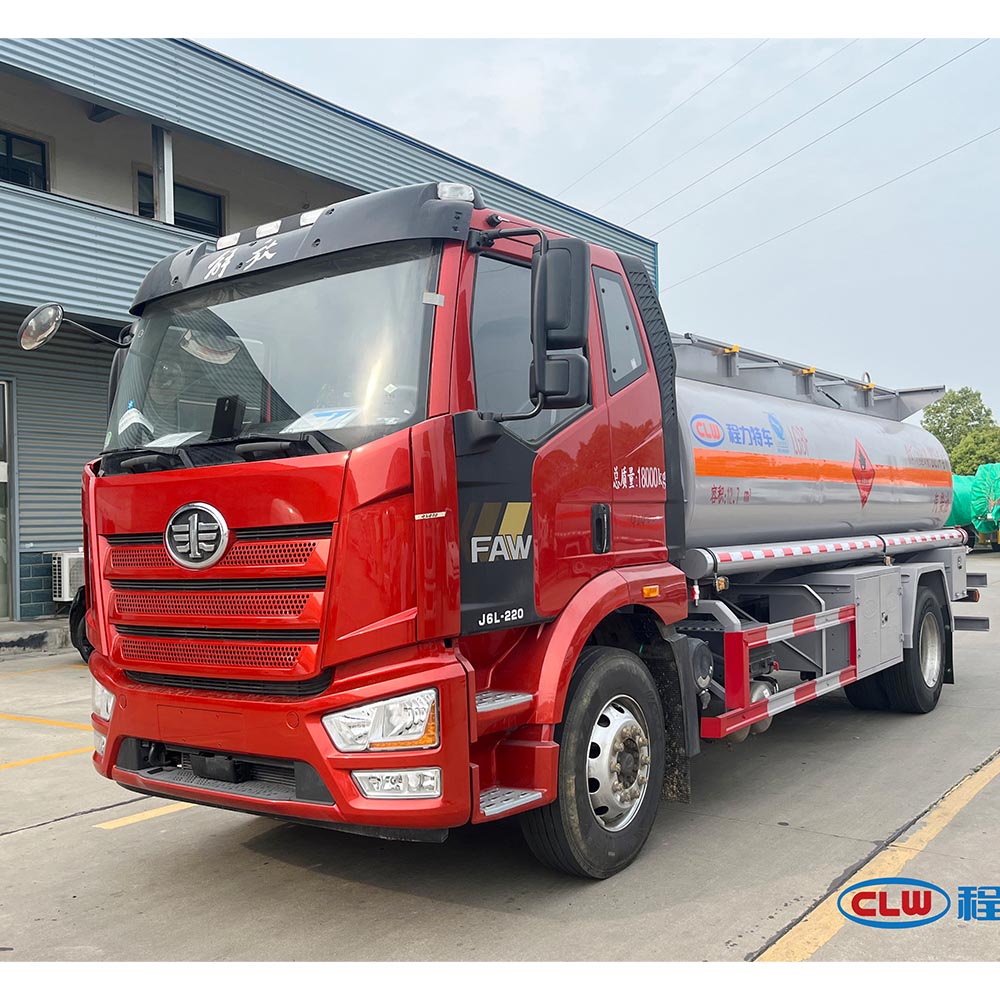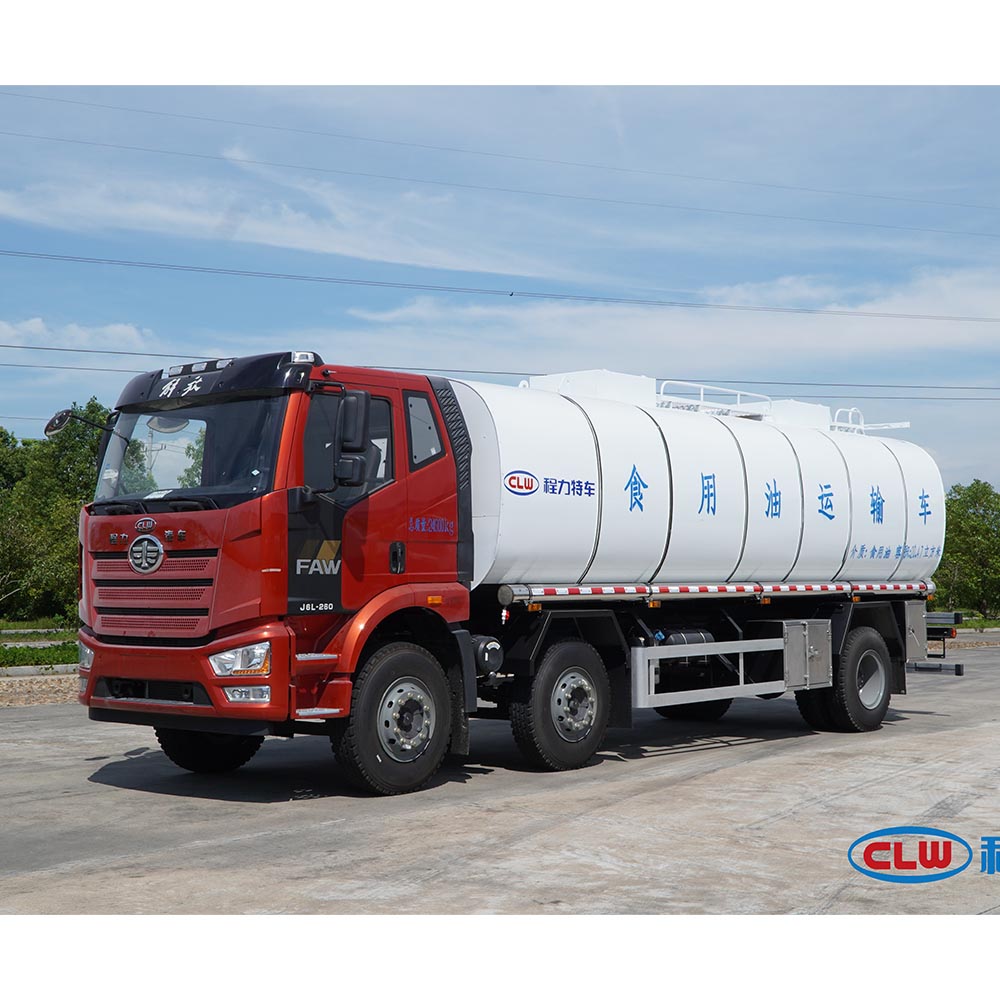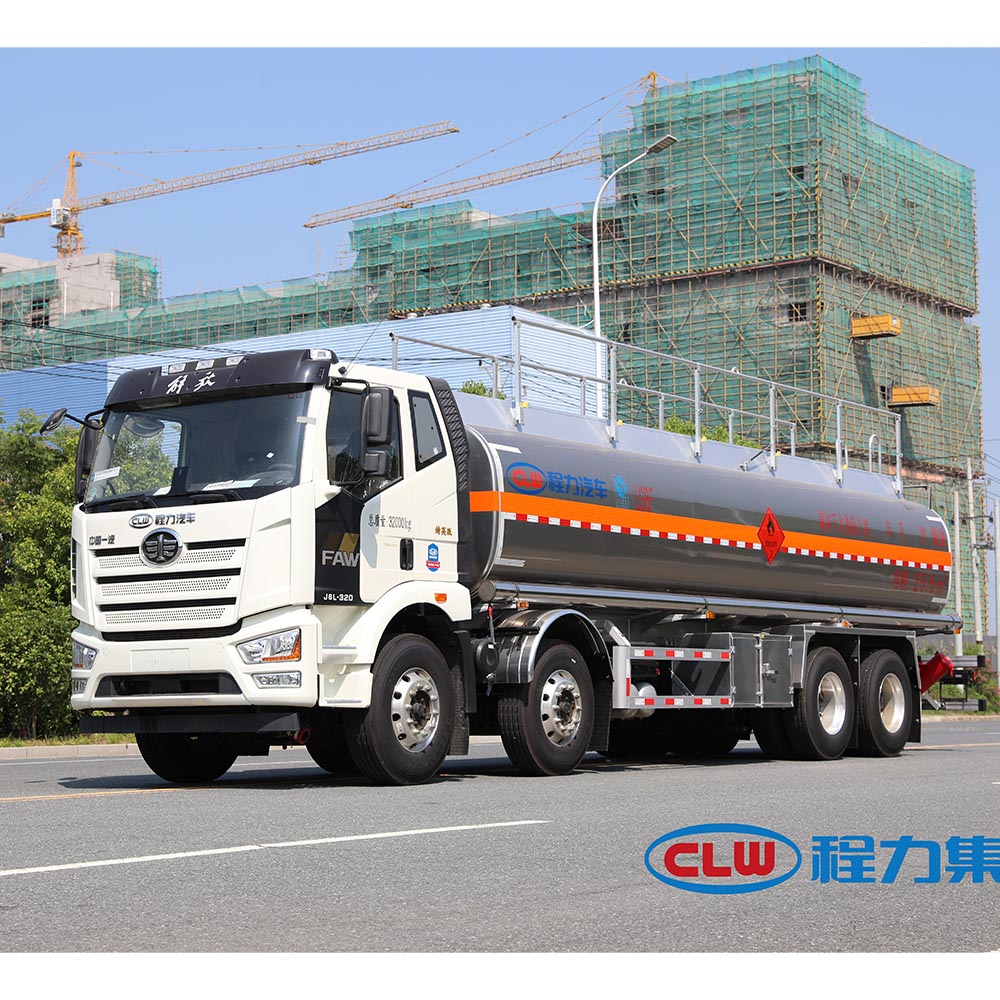-
Chengli Automobile Industrial Park
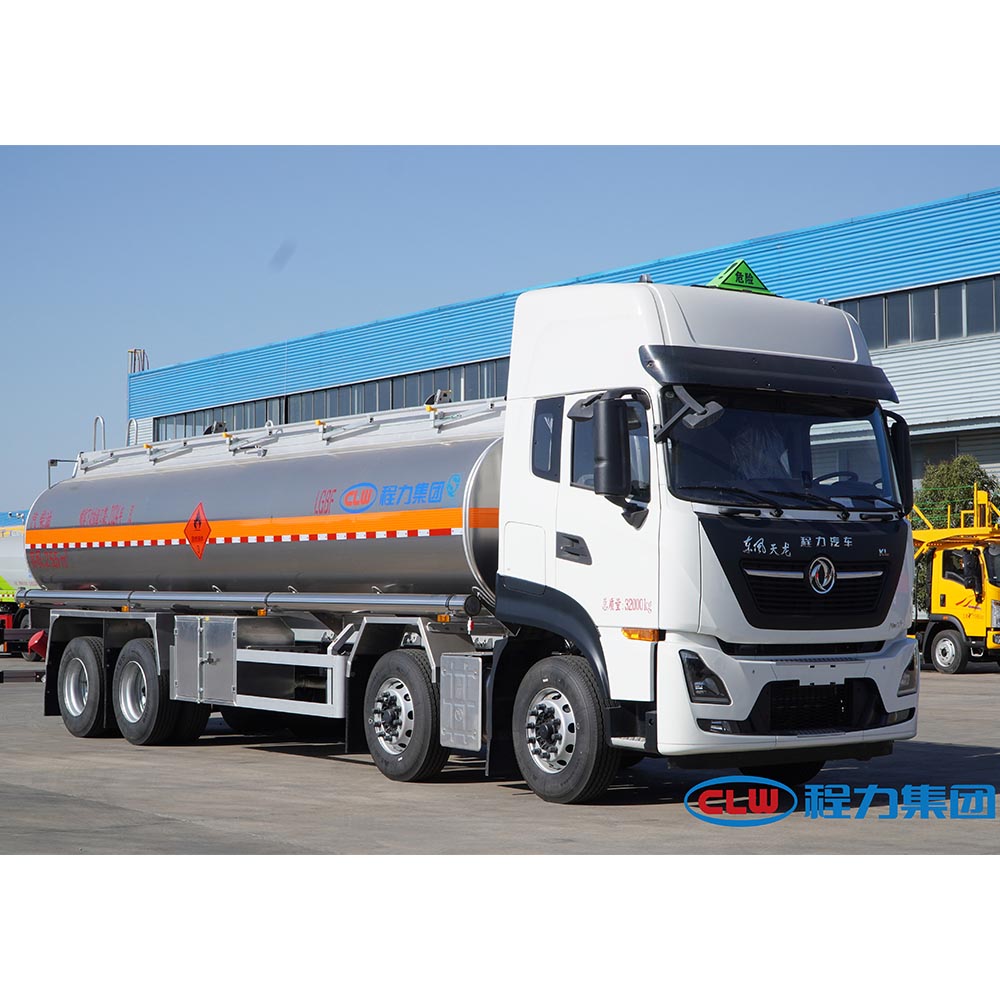
what is a milk tanker truck
Milk Tanker Truck: Hauling Fresh Milk with a Specialized Fleet
This article explores the vital role of milk tanker trucks in the dairy industry, focusing on their design, functionality, and the critical aspects of milk transportation. We’ll delve into how these specialized vehicles ensure the safe and efficient delivery of fresh milk from dairy farms to processing plants, maintaining its freshness and quality. For anyone involved in the dairy supply chain, from farm to table, understanding the intricacies of milk tanker trucks is essential, making this a must-read.
Table of Contents
What is a Milk Tanker Truck and Why is it Essential?
A milk tanker truck is a specialized vehicle designed for the transportation of milk. These trucks are an essential part of the dairy industry’s supply chain, providing a crucial link between dairy farms and processing plants. Unlike regular tankers, a milk truck is specifically engineered to transport large quantities of milk while preserving the milk’s quality and freshness.
These tanker trailers are typically made of food-grade stainless steel, which is not only durable but also easy to clean and sanitize. This is crucial to prevent bacterial growth and ensure that the milk remains safe for consumption. Milk tanker trucks are equipped with advanced insulation and refrigeration systems to keep the milk at the desired temperature throughout the journey. This is particularly important for long-distance transportation, where temperature fluctuations could compromise the milk’s freshness. As a milk tank truck manufacturing plant, we understand the intricacies involved in designing these specialized vehicles. Our mission is to provide the dairy industry with reliable, high-quality milk tanker trucks that meet the rigorous demands of milk transportation. We are committed to continuous advancement and innovation, ensuring that our milk tankers are equipped with the latest technology to maintain the milk’s optimal condition from farm to processing plant.
How Does a Milk Tanker Truck Maintain Milk’s Freshness and Quality?
Maintaining the freshness and quality of milk during transportation is paramount. Milk tanker trucks are specially designed to achieve this. When milk is collected from dairy farms, it is immediately cooled to a specific temperature to inhibit bacterial growth. Once loaded onto the milk tanker, the truck’s insulation and cooling systems work to maintain this temperature throughout the journey.
The inside of the tanker is made of food-grade stainless steel, which is easy to clean and prevents contamination. Advanced refrigeration systems are in place to monitor the temperature in real-time, ensuring that the milk remains at the desired temperature, typically around 4°C (39°F). This careful temperature control is crucial, especially during long-distance hauls, to prevent spoilage and maintain the milk’s freshness and quality. Additionally, our trucks are equipped with systems that allow for gentle agitation of the milk, preventing cream separation and ensuring a uniform product upon arrival at the processing plant.
What are the Design Features of a Milk Tanker Truck?
Milk tanker trucks have unique design features that distinguish them from other tank trucks. These trucks are equipped with a cylindrical or elliptical tank made of food-grade stainless steel, which ensures the milk’s quality and allows for thorough cleaning to prevent bacterial growth. The tanks are heavily insulated to minimize temperature fluctuations and maintain the milk’s freshness.
Inside the tanker, specially designed compartments or baffles help to reduce the sloshing of milk during transportation, which can cause churning and affect the milk’s quality. Our milk tanker trucks also feature advanced refrigeration systems that monitor and maintain the desired temperature throughout the journey. Additionally, these trucks are equipped with state-of-the-art pumping and cleaning systems, making it easy to load and unload the milk while ensuring optimal cleanliness. For instance, we have a Furika Refueling Truck which, although designed for fuel, showcases the kind of advanced engineering we apply to all our specialized vehicles, including milk tanker trucks. This commitment to quality and innovation makes us a trusted partner for dairy farms and processing plants alike.
What Capacity Can a Milk Tanker Truck Carry?
The capacity of a milk tanker truck can vary depending on factors such as the size of the tank and the truck’s axle configuration. Generally, milk tanker trucks can carry anywhere from 5,000 to 12,000 gallons of milk (approximately 19,000 to 45,000 liters). This wide range allows dairy farms and processing plants to choose a truck that best suits their specific needs.
For instance, a smaller dairy farm might opt for a single-axle truck with a 5,000-gallon tank, while a large-scale dairy operation might require a multi-axle truck with a capacity of 12,000 gallons or more. The ability to transport such large quantities of milk in a single trip is crucial for efficiency and cost-effectiveness in the dairy industry. At our manufacturing plant, we offer a variety of milk tanker truck models with different capacities to meet the diverse needs of our customers, from small-scale dairy farms to large dairy cooperatives.
How Does the Dairy Industry Benefit from Milk Tanker Trucks?
Milk tanker trucks play a vital role in the dairy industry, facilitating the efficient and safe transportation of milk from farms to processing plants. These specialized vehicles ensure that large quantities of milk can be transported while maintaining its freshness and quality. This is crucial because milk is highly perishable, and any delay or inadequate temperature control can lead to spoilage and significant economic losses.
By using milk tanker trucks, the dairy industry can optimize its supply chain, reduce transportation costs, and minimize the time between milking and processing. This not only ensures that consumers receive fresh, high-quality milk but also helps dairy farms and processing plants operate more efficiently. As a manufacturer of these specialized trucks, we are proud to contribute to the success of the dairy industry by providing reliable and innovative transportation solutions. For example, our Aluminum Alloy Oil Tanker showcases our expertise in creating durable and efficient transport solutions, which we also apply to our milk tanker trucks.
What are the Regulations and Standards in Milk Transportation?
The transportation of milk is subject to strict regulations and standards to ensure food safety and product integrity. These regulations cover various aspects, including the design and construction of milk tanker trucks, cleaning and sanitation procedures, temperature control, and driver training.
In many countries, milk tanker trucks must be made of food-grade stainless steel and equipped with proper insulation and refrigeration systems. Regular inspections and certifications are required to ensure compliance with these standards. Drivers of milk tanker trucks must also undergo specialized training to handle milk safely and maintain the required temperature during transportation. At our manufacturing plant, we adhere to all relevant regulations and standards, and our milk tanker trucks are designed and built to meet or exceed these requirements. This commitment to quality and compliance helps our customers in the dairy industry maintain the highest standards of food safety and product quality.
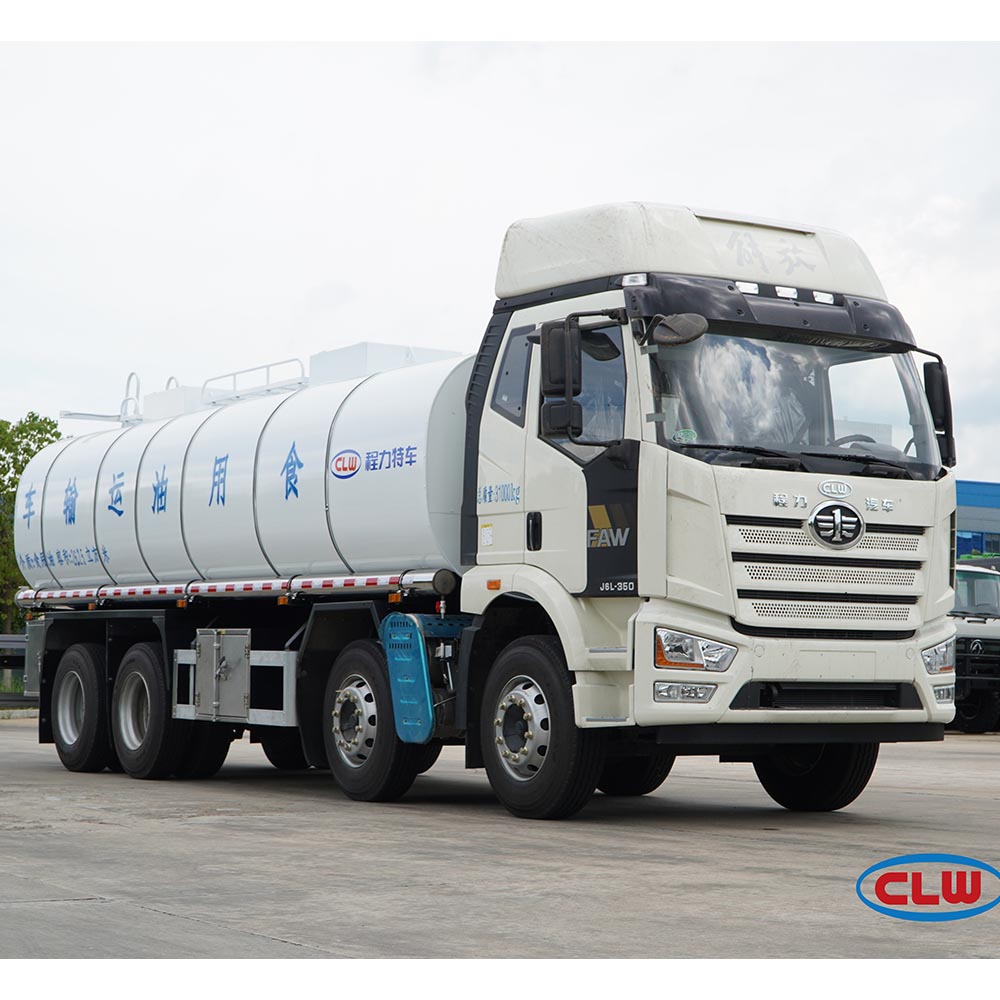
What is the Role of Technology in Modern Milk Tanker Fleets?
Technology plays an increasingly important role in modern milk tanker fleets. Advanced telematics and GPS tracking systems allow fleet managers to monitor the location and status of their trucks in real-time. This helps optimize routes, reduce travel distances, and ensure timely delivery of milk from dairy farms to processing plants.
Many milk tanker trucks are now equipped with sophisticated temperature monitoring systems that provide real-time data on the milk’s temperature inside the tanker. These systems can alert drivers and fleet managers if the temperature deviates from the desired range, allowing them to take corrective action promptly. Some advanced systems can even adjust the cooling automatically to maintain the optimal temperature. Additionally, technology is used to streamline the cleaning and sanitation process, with automated CIP (Clean-in-Place) systems ensuring that the tanks are thoroughly cleaned and sanitized between loads. As a forward-thinking manufacturer, we incorporate the latest technological advancements into our milk tanker trucks to enhance efficiency, safety, and product quality. Our Edible Oil Transport Truck is an excellent example of how we integrate technology to meet specific industry needs, a practice we extend to our milk tanker trucks as well.
Are There Environmental Considerations in Milk Transportation?
Environmental considerations are becoming increasingly important in all aspects of the dairy industry, including milk transportation. Milk tanker truck manufacturers and operators are exploring ways to reduce the environmental impact of their operations. One key focus is on improving fuel efficiency and reducing emissions.
Many modern milk tanker trucks are designed with aerodynamic features and use lightweight materials to improve fuel economy. Some operators are also exploring the use of alternative fuels, such as biodiesel or compressed natural gas, to reduce their carbon footprint. Additionally, optimizing routes and reducing empty miles through better logistics and coordination can also contribute to lower emissions. At our manufacturing plant, we are committed to sustainability and are continuously working to develop more environmentally friendly milk tanker trucks. We believe that by incorporating green technologies and practices, we can help the dairy industry reduce its environmental impact while maintaining efficiency and profitability.
What are the Challenges in Operating a Milk Tanker Fleet?
Operating a milk tanker fleet comes with its own set of unique challenges. One of the primary challenges is ensuring the timely collection and delivery of milk, given its perishable nature. Dairy farms operate on strict schedules, and milk must be collected and transported to processing plants within a specific timeframe to maintain its freshness.
Another challenge is maintaining the cleanliness and sanitation of the tanker trucks. Any contamination can compromise the milk’s quality and safety, leading to significant losses. Fleet operators must adhere to rigorous cleaning protocols and ensure that their trucks are regularly inspected and maintained. Additionally, managing a fleet of specialized vehicles requires significant investment in equipment, maintenance, and driver training. As a manufacturer, we understand these challenges and work closely with our customers to provide solutions that address their specific needs. We offer comprehensive support, including maintenance services and driver training programs, to help fleet operators overcome these challenges and operate efficiently.
How Do Milk Tanker Trucks Impact the Supply Chain?
Milk tanker trucks are a vital part of the dairy supply chain, impacting various stages from farm to consumer. By providing a reliable and efficient means of transporting large quantities of milk, these specialized vehicles ensure that milk reaches the processing plant in optimal condition, ready for pasteurization and further processing into various dairy products.
The efficiency of milk tanker trucks also impacts the overall productivity of dairy farms. With regular and timely milk collection, farms can maintain their production schedules and ensure a steady supply of fresh milk. This, in turn, benefits processing plants by providing them with a consistent volume of raw material for their operations. Ultimately, the effectiveness of milk tanker trucks directly influences the availability and quality of dairy products for consumers. As a manufacturer, we take pride in our role in supporting the dairy supply chain and contributing to the delivery of fresh, high-quality milk products to consumers worldwide. Our commitment to innovation and quality ensures that our milk tanker trucks are an asset to any dairy operation. For example, the technology and design principles we use in our Fuel Truck – 12.6m³ Diesel Engine are also applied to our milk tanker trucks, ensuring reliability and efficiency.
FAQs
1. What is the average lifespan of a milk tanker truck?
The average lifespan of a milk tanker truck is typically between 10 to 15 years, depending on factors such as usage, maintenance, and operating conditions. Regular maintenance and timely repairs can extend the lifespan of these specialized vehicles.
2. How often should milk tanker trucks be cleaned and sanitized?
Milk tanker trucks should be cleaned and sanitized after each use to prevent bacterial growth and ensure the milk’s safety. Most trucks are equipped with automated CIP (Clean-in-Place) systems that facilitate thorough cleaning.
3. What training is required for drivers of milk tanker trucks?
Drivers of milk tanker trucks must undergo specialized training that covers safe handling of milk, temperature monitoring, cleaning procedures, and relevant regulations. This ensures they can operate the trucks efficiently and maintain the milk’s quality during transportation.
4. Can milk tanker trucks be used to transport other liquids?
While milk tanker trucks are specifically designed for transporting milk, they can technically be used to transport other food-grade liquids, provided they are thoroughly cleaned and sanitized between uses. However, it’s generally recommended to dedicate these trucks solely to milk transportation to avoid any risk of cross-contamination.
5. How is the milk temperature monitored during transportation?
Modern milk tanker trucks are equipped with advanced temperature monitoring systems that provide real-time data on the milk’s temperature inside the tanker. These systems typically use sensors placed inside the tank, and the data is displayed on a monitor in the driver’s cabin. Some systems can also send alerts if the temperature deviates from the desired range.
6. What happens if the milk temperature rises above the acceptable limit during transportation?
If the milk temperature rises above the acceptable limit during transportation, it can compromise the milk’s quality and safety. Drivers are trained to monitor the temperature regularly and take corrective action if needed, such as adjusting the refrigeration system. In some cases, if the temperature deviation is significant, the milk may need to be discarded to prevent potential health risks.
Conclusion
Here are the most important things to remember about milk tanker trucks:
- Milk tanker trucks are essential for transporting fresh milk from dairy farms to processing plants.
- These trucks are made of food-grade stainless steel and are equipped with insulation and refrigeration systems to maintain the milk’s freshness and quality.
- Milk tanker trucks can typically carry between 5,000 to 12,000 gallons of milk (19,000 to 45,000 liters).
- The dairy industry benefits from milk tanker trucks through efficient transportation, reduced spoilage, and optimized supply chain operations.
- Strict regulations and standards govern milk transportation to ensure food safety and product integrity.
- Technology plays a crucial role in modern milk tanker fleets, with advanced monitoring and tracking systems enhancing efficiency and safety.
- Environmental considerations are becoming increasingly important, with efforts to improve fuel efficiency and reduce emissions in milk transportation.
- Operating a milk tanker fleet presents challenges such as timely collection and delivery, maintaining cleanliness, and managing specialized equipment.
- Milk tanker trucks have a significant impact on the dairy supply chain, influencing the productivity of farms, the efficiency of processing plants, and the availability of dairy products for consumers.
- As a manufacturer, we are committed to providing high-quality, innovative milk tanker trucks that meet the evolving needs of the dairy industry.
By understanding the critical role of milk tanker trucks and the intricacies of their operation, stakeholders in the dairy industry can make informed decisions that enhance efficiency, ensure product quality, and contribute to the overall success of their operations. We invite you to contact us to learn more about how our milk tanker trucks can benefit your business. Our team is ready to provide you with tailored solutions and answer any questions you may have. Let’s work together to drive the dairy industry forward.





